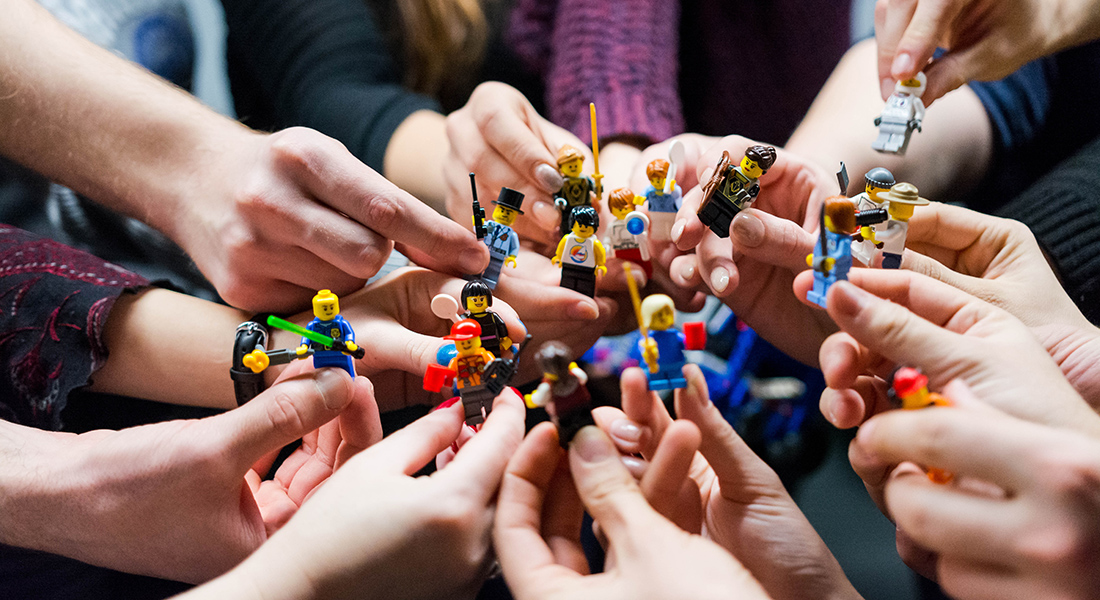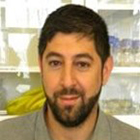Community

Through dynamic interdisciplinary projects that harness the expertise of diverse fields such as microbiology, bioinformatics, nutrition, medicine, and engineering, our hub drives groundbreaking discoveries and fosters the translation of research into tangible applications.
What sets the Copenhagen region apart is its rich ecosystem, bringing together over 30 esteemed academic research leaders from top universities and hospitals, pioneering start-ups, and world-leading R&D companies in food ingredients and pharmaceuticals, all actively engaged in microbiome research.
Members* of Copenhagen Gut Microbiome Hub
*Members are independent scientists working with gut microbiome research in the Copenhagen region
University of Copenhagen
Mail: hero@nexs.ku.dk
Our research focuses on
- Personal responses to foods and diets through metabolomics analyses
- Identification of microbial metabolites and their role in health and disease
- Diet-induced effects on the colonic fermentation and the gut-brain axis
Methods and expertise
 Mail: dn@food.ku.dk
Mail: dn@food.ku.dk
Our research focuses
- Links between the mammalian gut microbiome, health and disease
- How GM is influenced by diet, bacteriophages, pre- and probiotics
- High throughput sequencing based methods to study the GM
Methods and expertise
- High throughput sequencing and data integration (incl. virome)
- Microbial interactions (especially bacteriophage-bacteria interactions)
- In vitro models
 Mail: krych@food.ku.dk
Mail: krych@food.ku.dk
Our research focuses on
- Host / gut microbiome interactions
- Development of molecular based solutions to study complex microbial communities
- Microbial interactions in food and gut
Methods and expertise
- Molecular based methods to study complex microbial communities
- Long read sequencing (Oxford Naopore Technologies) applications to study metagenomes
- NGS methods (illumina)
 Mail: mortenr@food.ku.dk
Mail: mortenr@food.ku.dk
Our research focuses on
- Statistical modelling of microbiome data
- Impact of Microbiome on nutrition
- Implications of the microbiome on health
Methods and expertise
- Data Science, Statistics, Chemometrics
- Metabolomics
- Bioinformatics
 Mail: camfriis@sund.ku.dk
Mail: camfriis@sund.ku.dk
Our research focuses
- Impact of early life gut microbiota and diet on the host’s immune response and outcome on chronic diseases
- Refinement of animal models of autoimmune, allergic, neurodevelopmental and metabolic disorders
- Improving reproducibility in lab animal science through naturalisized housing, wild mice microbiota, pathogen exposure
Methods and expertise
- Germ-free/gnotobiotic housing of mice
- Fecal microbiota transplantations
- Various in vivo models/methods/experimental immunology
 Mail: arw@sund.ku.dk
Mail: arw@sund.ku.dk
Our research focuses on
- Interactions between dietary components (pre-, probiotics) and immunity to enteric pathogens
- The role of the gut microbiota and microbial-derived metabolites in mucosal immune function
- Novel anti-microbial and anti-inflammatory compounds derived from natural sources (e.g. fermented plant material)
Methods and expertise
- Animal models (pigs, mice) of parasitic and bacterial pathogen infection
- Mucosal Immunity
- Cell culture approaches to assessing activity of bioactive compounds
 Mail: thomas.thymann@sund.ku.dk
Mail: thomas.thymann@sund.ku.dk
Our research focuses on
- Precilinal models of early postnatal gut colonization
Methods and expertise
- Cesarean -derived piglets housed individually an colonized with e.g. probiotics or fecal transplants
 Mail: lg@sund.ku.dk
Mail: lg@sund.ku.dk
Our research focuses on
- Microbiome biomarkers to predict disease onset in livestock and companion animals
- Stress-induced changes in porcine gut microbiota
- Effect of FMT on health in pigs
Methods and expertise
- Targeted and untargeted microbiome sequencing and data analysis
- DNA extraction from different matrices
- Resistome analysis
 Mail: mapi@sund.ku.dk
Mail: mapi@sund.ku.dk
Our research focuses on
- Microbiome biomarkers to predict disease onset in livestock and companion animals
- Stress-induced changes in porcine gut microbiota
- Effect of FMT on health in pigs
Methods and expertise
- Targeted and untargeted microbiome sequencing and data analysis
- DNA extraction from different matrices
- Resistome analysis
 Mail: Urvish.Trivedi@bio.ku.dk
Mail: Urvish.Trivedi@bio.ku.dk
Our research focuses
- Spatially resolved multi-omics to study microbial ecology and host-microbiota interactions in 3D
- Impact of the early life human microbiome and associated environmental factors on later disease development
- Utilize clinically relevant in vitro and in vivo models combined with molecular techniques to study microbial interactions and evolution
Methods and expertise
- High-resolution imaging techniques
- In vitro culturing methods and animal models to study polymicrobial communities and pathogen virulence
- High throughput sequencing techniques and data analyses
Courses
Mail: sjs@bio.ku.dk 
Our research focuses on
- Utilize clinically relevant in vitro and in vivo models combined with molecular techniques to study microbial interactions and evolution
- Role of microbe/microbe interactions in microbiome assembly and maturation
- Characterization of gut mobilome and it role in microbiome evolution
Methods and expertise
- High throughput sequencing techniques including PacBIO and Nanopore long read sequencing and data analyses
- Targeted plasmidome characterization using novel combined wetlab and bioinfomatic pipeline
- FISH detection combined with high-resolution imaging techniques and single cell FACS sorting
Courses
 Mail: kk@bio.ku.dk
Mail: kk@bio.ku.dk
Our research focuses on
- Human microbiome and diseases
- Animal models
- Soil microbiome
Methods and expertise
- HIgh-throughput sequencing and bioinformatics
- Culturomics
- Causality using animal models
 Mail: arumugam@sund.ku.dk
Mail: arumugam@sund.ku.dk
Our research focuses on
- Role of gut microbiome in health and disease
- Data science approaches to study the gut microbiome
- Ex vivo approaches to modulate the gut microbiome via diet and other factors
Methods and expertise
- Microbiome data science
- In vitro and ex vivo models including SHIME
- Multi-omics integration
 Mail: chk@plen.ku.dk
Mail: chk@plen.ku.dk
Our research focuses on
- Early and late stage preclinical models for evaluation of pre- and probiotics
Methods and expertise
- Invertebrates (cockroaches) and minipigs
 Mail: benjamin.jensen@sund.ku.dk
Mail: benjamin.jensen@sund.ku.dk
Our research focuses on
- Human Gut Barrier Function & Host-Microbe interactions
- Development of experimental systems (and diets) tailored to model human disease with unmet medical needs
- Host-diet-microbe Interactions, Compartmentalized Immunology & Gut microbiome functionality
Methods and expertise
- Customized Mouse Models (Hot N' Cold, DIO, NASH, Barrier integrity, Colitis, Abx, Viral infections, and more)
- Immune characterization & Diet customization
- Barrier function & FMT
 Mail: np@math.ku.dk
Mail: np@math.ku.dk
Our research focuses on
- Statistical methodology for microbiome data
- Causal inference in complex biological systems
- Dynamical modelling of microbial communities.
Methods and expertise
- Causality
- Dynamical models
- Statistical analysis of microbiome data
 Mail: sbandersen@sund.ku.dk
Mail: sbandersen@sund.ku.dk
Our research focuses on
- Microbial social interactions
- Effects of early life gut microbiome composition
- Microbial Evolutionary Medicine
Methods and expertise
- Organoid gastric models
- Rodent models + zoo & wild animal sampling
- Microbiome sequencing and analyses
Technical University of Denmark
 Mail: mfrla@food.dtu.dk
Mail: mfrla@food.dtu.dk
Our research focuses on
- Impact of diet on gut microbiome in adults and infants
- Microbial metabolism of diet and the regulation of this process
- Mechanisms behind effect of FMT
Methods and expertise
- In vitro models including biostats and TIM-2
- Rodent models and germ-free mice
- Analysis and interpretation of microbiome and metabolome in human fecal samples
 Mail: trli@food.dtu.dk
Mail: trli@food.dtu.dk
Our research focuses on
- Impact of diet on gut microbiome in adults and infants
- Microbial metabolism of diet and the regulation of this process
- Mechanisms behind effect of FMT, and (4) Effects of the microbiome on toxicity of xenobiotics from food
Methods and expertise
- In vitro models including biostats and TIM-2
- Rodent models and germ-free mice
- Analysis and interpretation of microbiome and metabolome in human fecal samples
 Mail: akusi@food.dtu.dk
Mail: akusi@food.dtu.dk
Our research focuses on
- Effects of diet and abiotic factors on gut microbiome
- Molecular microbiology of gut microbes
- Impact of microbial metabolites on host health and disease
Methods and expertise
- In vitro culturing methods including batch fermentation, chemostats and colon model system (TIM-2)
- Conventional and germ-free mice
- Metabolomics
 Mail: masmo@food.dtu.dk
Mail: masmo@food.dtu.dk
Our research focuses on
- Impact of diet on gut microbiome in adults and infants
- Clinical effects of fecal microbiota transplantation
- Effects of the microbiome on toxicity of xenobiotics from food.
Methods and expertise
- Analysis and interpretation of microbiome and metabolome in human fecal samples
- In vitro culturing methods including batch fermentation, chemostats and colon model system (TIM-2)
- Rodent models and germ-free mice
 Mail: msom@biosustain.dtu.dk
Mail: msom@biosustain.dtu.dk
Our research focuses on
- Advanced Microbiome Therapeutics
- Microbial Foods
Methods and expertise
- Synthetic biology
- Anaerobic cultivation (culturomics)
- Sequencing, functional metagenomics
Other institutions
 Mail: stokholm@copsac.com
Mail: stokholm@copsac.com
Our research focuses on
- Maturation and development of the infant microbiome
- Gut/airway/skin microbiome in relation to diseae and health in childhood
- Early life shaping of the microbiome/virome
Methods and expertise
- Cohort based observational approaches
- Randomized controlled trials in children
- Analysis of microbiome vs health outcomes
 Mail: andreas.munk.petersen@regionh.dk
Mail: andreas.munk.petersen@regionh.dk
Our research focuses on
- Fecal Microbiota Transplantation and Live biotherapeutic products
Methods and expertise
- Clinical trails
 Mail: run@ssi.dk
Mail: run@ssi.dk
Our research focuses on
- Genetic diverisity and host specificity of common eukaryotic gut endobionts
- Associations between gut bacteria and gut parasites
- The role of common eukaryotic gut endobionts in health and disease
Methods and expertise
- Metabarcoding (16S+18S) using ILLUMINA sequencing
- High-throughput platforms for DNA extraction and sequencing
- Diagnostic expertise and accreditation
 Mail: obi@ssi.dk
Mail: obi@ssi.dk
Our research focuses on
- Development of custom build NGS microbiome platforms
- Software develpment for taxonomic mapping
- Automatization/Optimization
 Mail: trinn@regionsjaelland.dk
Mail: trinn@regionsjaelland.dk
Our research focuses on
- Host microbiota interaction in cardiometabolic diseases
- Effect of FMT in diabetes


 Mail:
Mail: 